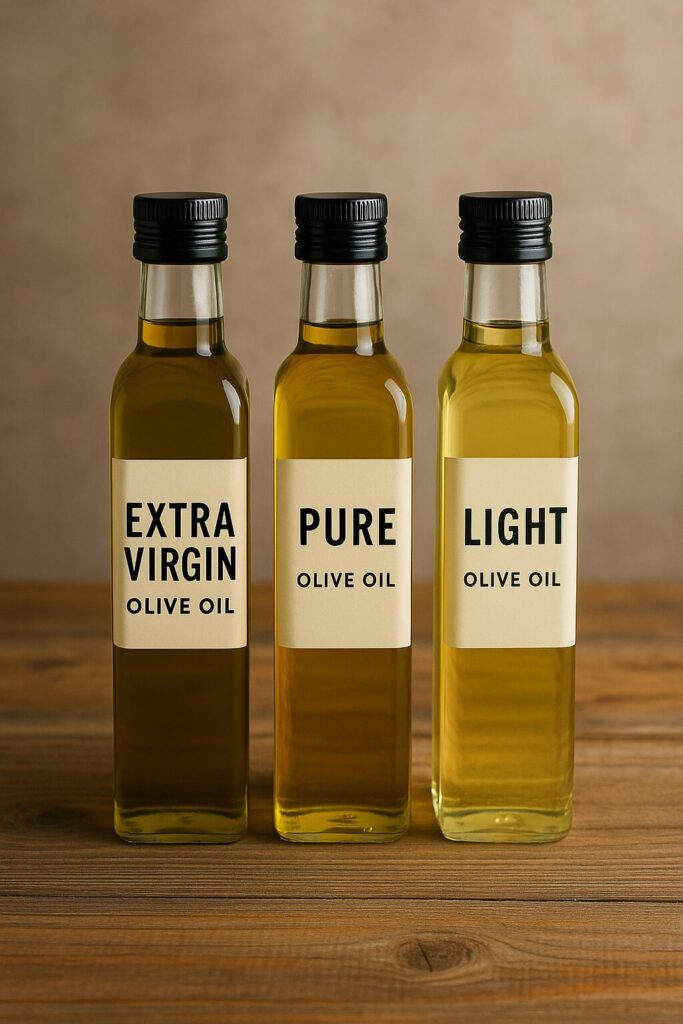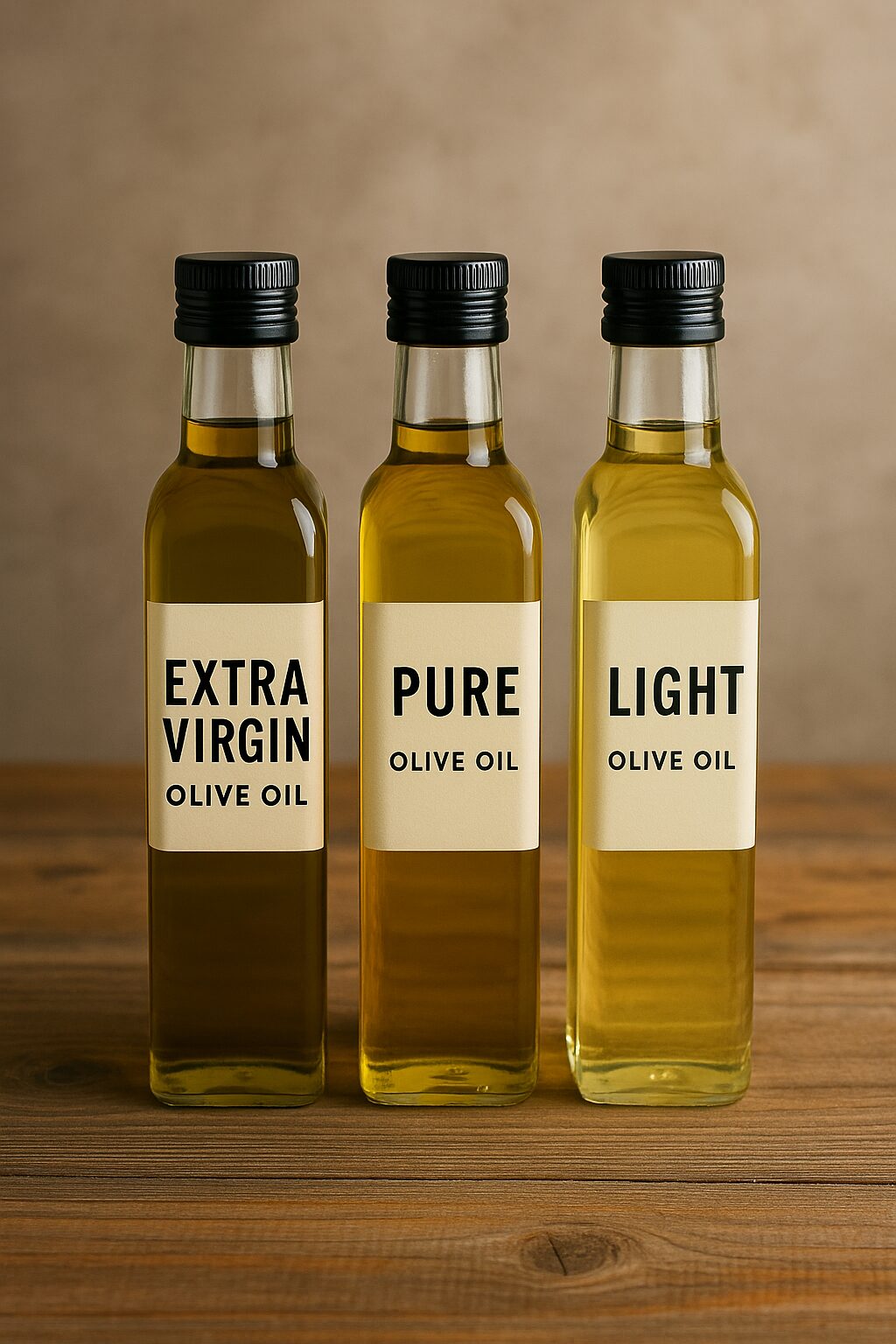Olive oil is a key part of the Mediterranean diet and is widely valued for its flavor and health benefits. However, labels such as extra virgin, pure, and light can often be confusing. These categories differ in extraction methods, refinement, flavor, and nutritional value. This article explains the differences and suggests the best culinary uses for each type.

1. Extra Virgin Olive Oil
Extra virgin olive oil is the highest quality oil, made from the first cold pressing of olives. It is unrefined and retains its natural aroma and taste, with a slightly bitter and peppery note. Rich in polyphenols and vitamin E, it may support antioxidant defense and heart health. Because it is sensitive to high heat, it is most suitable for salad dressings, dips, or finishing dishes rather than frying.
2. Pure Olive Oil
Pure olive oil is a blend of refined olive oil and a small amount of extra virgin olive oil. The refining process reduces strong flavors and impurities, resulting in a lighter taste and aroma. While lower in antioxidants than extra virgin, it still provides healthy monounsaturated fats. It may be recommended for everyday cooking such as stir-frying and sautéing.
3. Light Olive Oil
The term “light” refers to color and flavor, not calories. Light olive oil is highly refined, so it has little taste or aroma. This makes it useful for high-heat cooking like baking, roasting, and deep frying, where a neutral oil is preferred. However, it contains fewer antioxidants compared to extra virgin varieties.
4. Nutritional and Flavor Differences
– Extra Virgin: Strong flavor, highest antioxidants, best for raw uses.
– Pure: Mild flavor, balanced for general cooking.
– Light: Neutral flavor, stable for high-heat cooking.
5. Culinary Applications
Use extra virgin for salads, bread dipping, and pasta toppings. Pure olive oil may suit stir-fried or roasted vegetables. Light olive oil can replace common cooking oils for baking or frying, especially when olive flavor is not desired.
🍀
Extra virgin, pure, and light olive oils each have their strengths. Extra virgin is rich and flavorful, pure is versatile, and light is heat-stable. Choosing the right type may enhance both nutrition and taste depending on cooking needs.
References and Further Reading
International Olive Council (IOC) – Olive Oil Categories
World Health Organization (WHO) – Guidelines on Healthy Oils
National Institutes of Health (NIH) – Olive Oil and Heart Health
※ This article is for general informational purposes only. Cooking results and health impacts may vary, and professional consultation is generally recommended for specific dietary needs.
